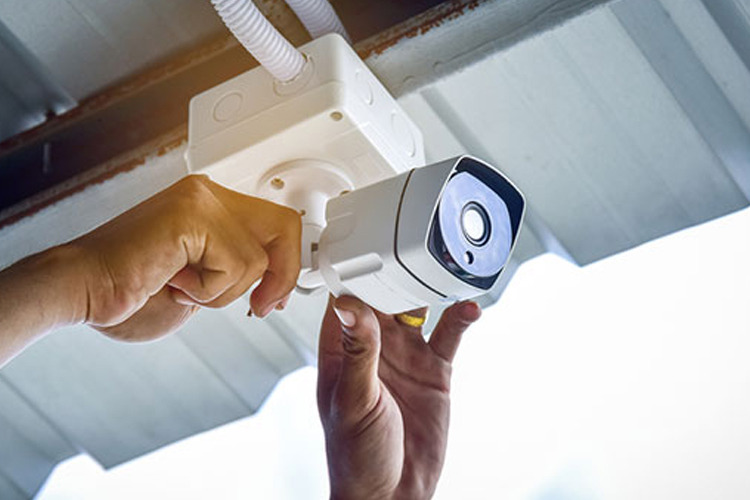Free online CCTV course certificate, CCTV training institute, CCTV installation course fee, CCTV installation course online, CCTV training courses, CCTV installation training, CCTV training, access control training, security camera installation lesson, CCTV installation training courses near me, CCTV installation certificate, CCTV security training, and online CCTV installation course.

What is CCTV?
Closed Circuit Television (CCTV) is a security system that is self-contained and intended to monitor activities in both public and private areas.
CCTV may also be defined as a surveillance system that enables video cameras to transmit direct signals to a specific location through a wired or wireless connection. The signal that is transmitted is not broadcast; however, it can be stored in a storage device with the assistance of a DVR for future reference and record-keeping. Because of its direct transmission and lack of broadcasting, it is referred to as a Closed Circuit Television.
Benefits of CCTV:
- CCTV is capable of providing comprehensive security surveillance in both public and private locations, including event centres and stores.
- CCTV is instrumental in the surveillance of our offices, which includes financial institutions such as banks.
- It offers security surveillance to safeguard individuals in public areas, including events, clubs, and markets.
- CCTV serves as an effective safeguard against burglary and property loss.
- CCTV offers a continuous monitoring service.
- It offers employment opportunities for CCTV professionals.
- It provides a means of self-employment.
- They are employed to discourage criminal activity.
- They assist in the protection of property and life by monitoring congested areas.
- CCTV assists in the preservation of past and present events for future reference.
- CCTV systems offer a surveillance system for a residence or business that can be accessed remotely, allowing the proprietor to monitor their asset even when they are physically distant.
- CCTV assists onlookers and investigators in recognizing specific incidents prior to taking action.
The CCTV system offers security surveillance to safeguard the environment, offices, assets, and individuals. Mini cameras, recorders, drives, and terminals comprise a CCTV system. CCTV employs a direct transmission system to connect a camera to a video monitor. This is in contrast to broadcast television, which transmits the signal over the air and is viewed on a television.
Parts or Components of a CCTV System:
Parts or Components of a CCTV System:
- DVR
- Storage device
- BNC connectors
- Video Cable
- Monitor
- Digital camera
The power distribution system for CCTV must be designed with a number of factors in mind. Consequently, it is advisable to seek the advice of licensed electrical engineers when designing and installing a CCTV power distribution system. Additionally, these professionals can provide valuable insights into optimizing the system’s efficiency and safety measures. One of the most prevalent issues with CCTV equipment is an insufficient power supply, which frequently results in erratic or intermittent equipment operation.
A clean, sufficient electricity source is necessary for the optimal operation of a CCTV system. For instance, power circuits may experience significant fluctuations during periods of extreme heat when air conditioning units exceed their capacity. Consequently, agencies should make the necessary preparations and specify power conditioning or reserves as required. The stability of the input power to CCTV equipment can be ascertained by obtaining multiple readings of the voltage and current levels within a brief period or by employing a voltage recorder for long-term monitoring.
The quality of the video throughout the complete CCTV system can be impacted by an insufficient power supply. The placement of electrical components is a critical design factor. Placing low-voltage power components in close proximity to high-voltage lines can result in the induction of currents in the low-voltage system, posing a risk to both personnel and equipment. Alternatively, installation costs may increase due to the larger conductor sizes needed to mitigate voltage loss over long distances, as well as potential power fluctuations if a power source is positioned too far away.
The CCTV Study:
The Full Course will provide you with a Diploma Certificate that will allow you to demonstrate your knowledge and expertise in CCTV Systems and Installation.
Duration: Make Your Own Timetable
Lecture Format: Web and Video
Certificate: Diploma
Course Description for CCTV:
- Introduction/Overview of CCTV
- CCTV System Requirements
- System Design Considerations for CCTV
- Closed-circuit television (CCTV)
- CCTV – Lenses
- CCTV – Mounts and Housing
- CCTV – Video Monitors
- CCTV – Multiplexers and Switchers
- CCTV – Video Recorders
- CCTV – Transmission via wire
- Wireless Transmission of CCTV
- CCTV – Network Transmission
- CCTV – Media Storage
- CCTV – Network Storage That Scales
- CCTV – Video Analytics
- CCTV – Systemic Approach
- CCTV – Installation, Component Integration, and Tools
- CCTV – Digital Technologies
- Enhancements to Current Technology in CCTV
- CCTV: Significant IT Trends and Artificial Intelligence
- CCTV – Criteria for Selection
- CCTV – Vendor Resources
- Video Lectures on CCTV Installation
- Certification and Examinations for CCTV
 No products in the cart.
No products in the cart.